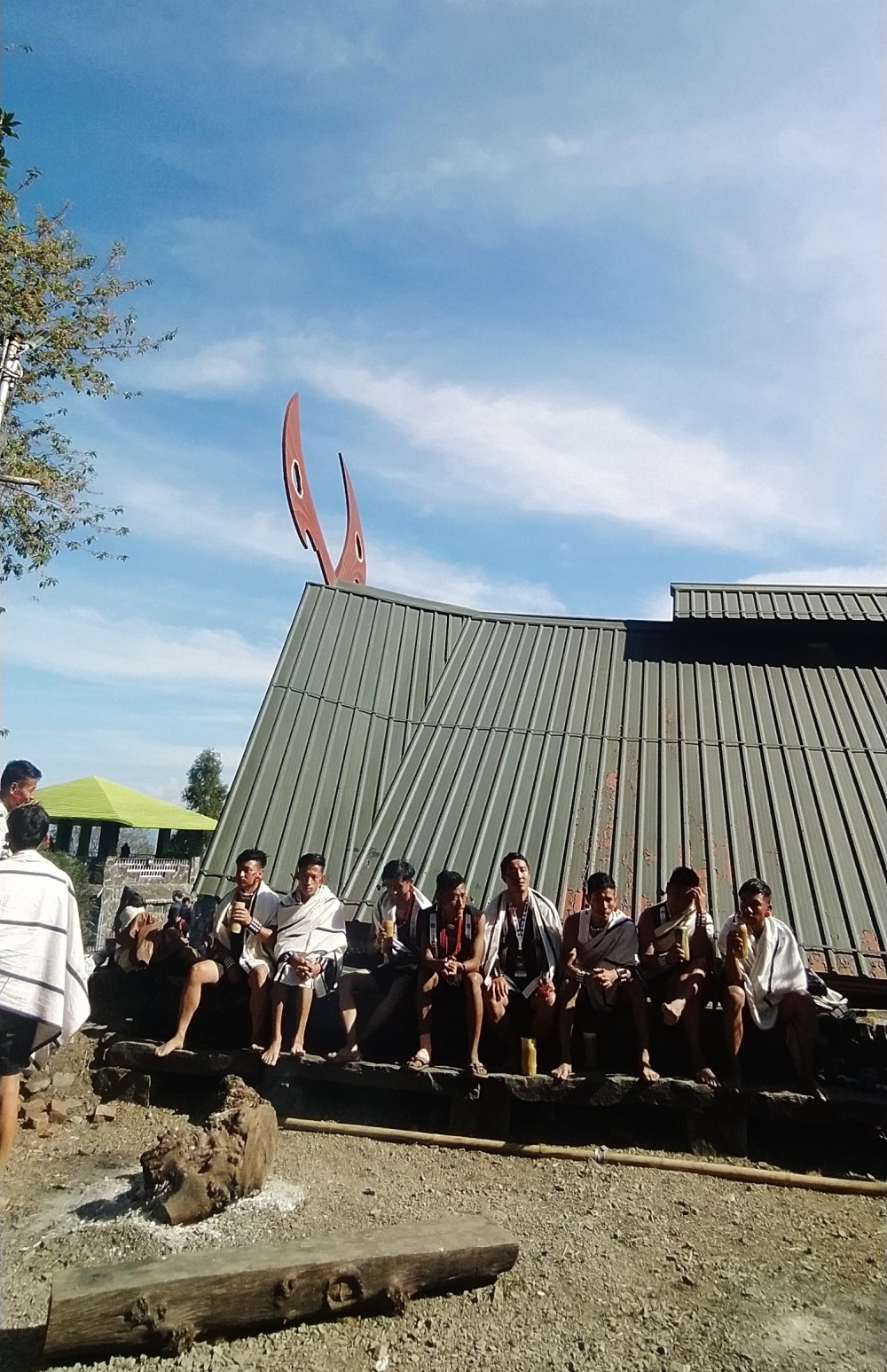A group of young boys at The Naga Heritage Village, Kisama during the recently concluded Hornbill Festival 2023. (Morung Photo)

Tiapong Tzudir
In sociological terms, culture denotes the collective beliefs, values, customs, behaviours, and artifacts shaping a group or society. It defines how people perceive the world, communicate, and transmit their practices across generations, playing a pivotal role in shaping social identity within a community. In our tribal community, various threats to our culture may emerge, including exposure to external cultures through globalization and interactions with mainstream societies and tourists. Cultural misappropriation and assimilation pose risks, potentially leading to the erosion of traditional practices, beliefs, and languages, causing cultural conflicts within the community.
Since 2018, I have actively participated in the Hornbill Festival, documenting it on my social media and inviting friends and tourists to experience our ancestral practices. Despite the festival’s current success in terms of footfalls and revenue, it is also crucial to reflect on its sustainability for future decades. While the Hornbill Festival celebrates cultural diversity, there surely is room for improvement in its execution. Particularly, the Morungs, representing 17 different tribes, needs more management. Although the Morungs are the best highlights during the festival, kudos to the organisers for educating, imparting and sharing about our community to the curious minds. However, a little food for thought shouldn’t hamper; the recent trend of playing Bollywood and Western music raises concerns about our cultural preservation.
The dilemma for me revolves around whether to cater to tourists’ musical preferences for attraction or ensure the inclusion of our cultural songs to educate visitors about our heritage. This potential risk of commercialization, though seemingly harmless now, demands consideration of its long-term impact on our cultural integrity. Striking a balance is essential to preserve our identity while making the festival appealing. We should aim to avoid a scenario where tourists perceive it primarily as a showcase of Western culture, potentially leading to a decline in visits. This issue necessitates thoughtful consideration and timely action to safeguard our cultural heritage. Despite my fulfilling moments at the Hornbill Festival, a lot of underlying concerns emerged deep down. Our cultural heritage is transforming into a mere market commodity, risking detrimental impacts on our small tribal society. This commercialization trend is directly responsible to cultural homogenization, which is erasing unique traditions and languages. Symbols and meanings are often exploited, perpetuating stereotypes without understanding their significance.
While I do fully appreciate and respect the Festival however there is a crucial need that we need to reflect and retrospect. Thank you for engaging with my thoughts. I hope the essence of my message resonates and the urgency of addressing these now rather than later.





